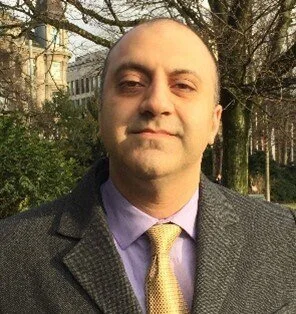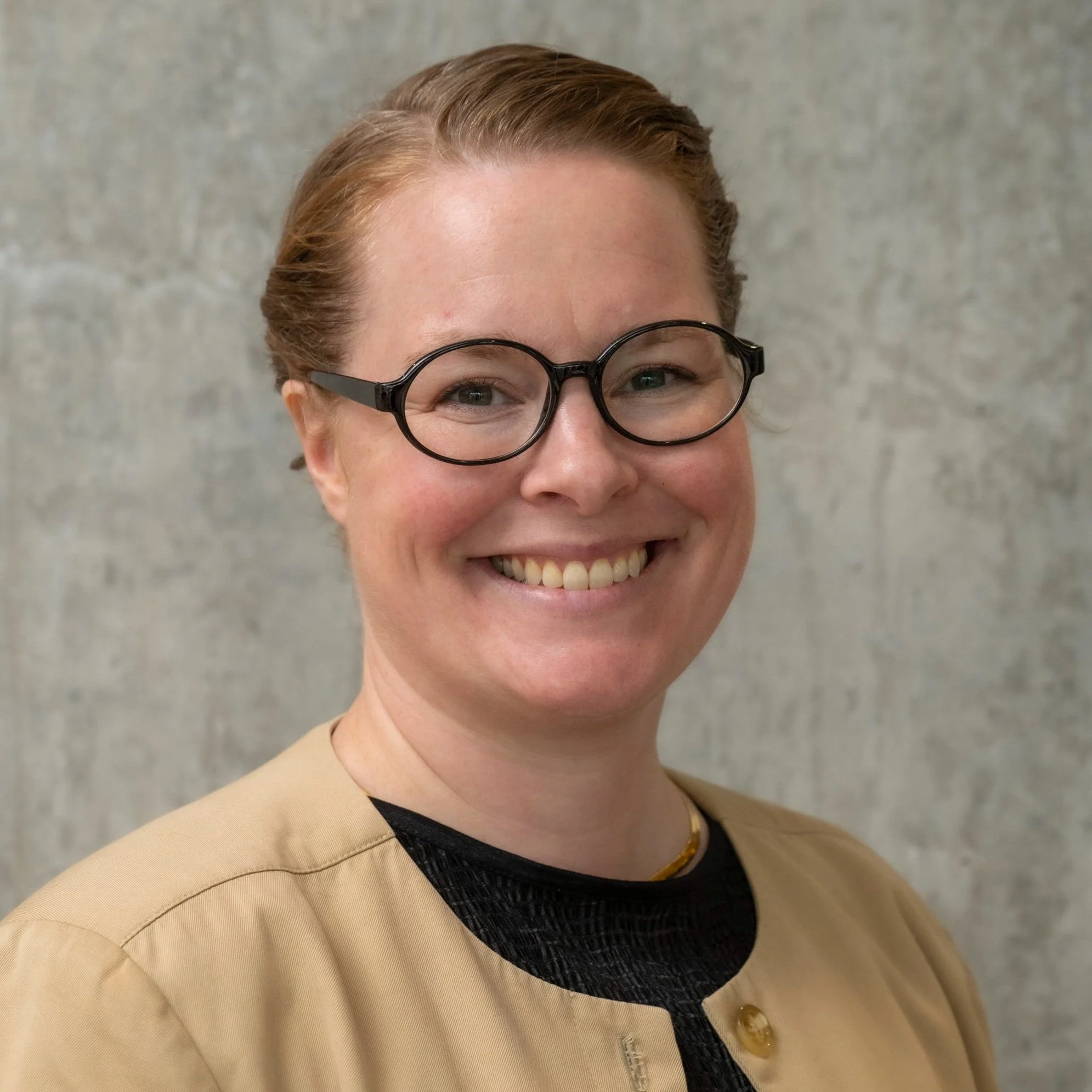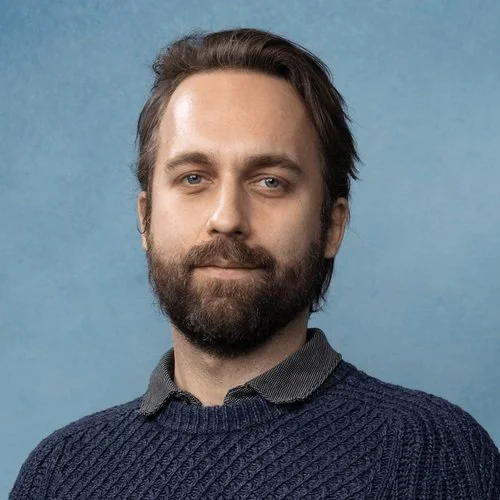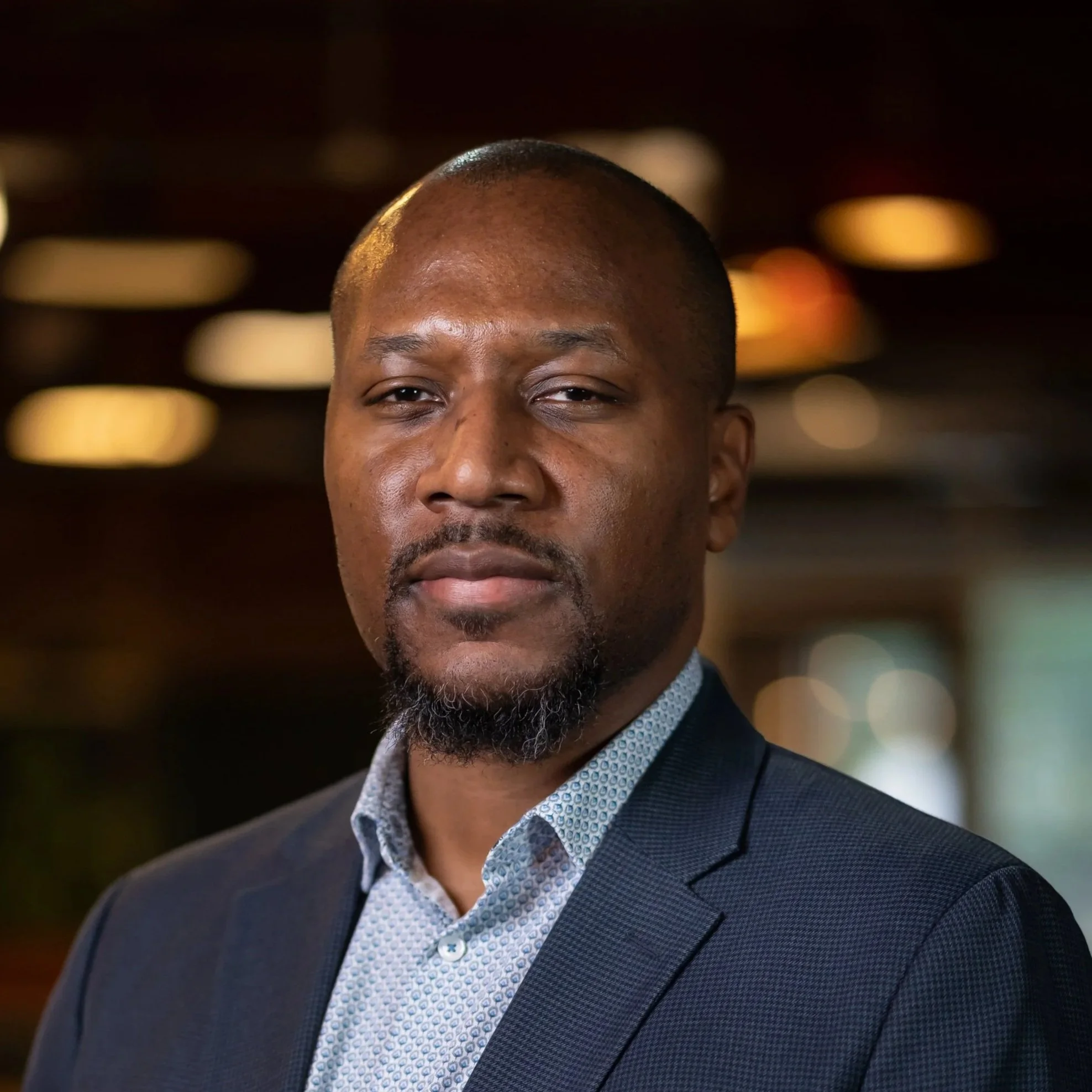Speakers
-

Rami Alhaddad
Business Intelligence Manager, Calgary Catholic Immigration Society
Rami is an experienced professional specializing in data analytics, business intelligence, and digital transformation. With a strong background in developing data-driven solutions, he has led initiatives to improve organizational efficiency, streamline data processes, and enhance decision-making capabilities. Rami has successfully implemented advanced reporting tools, integrated CRM systems, and built scalable data infrastructures across various sectors.
-

Roua Aljied
Senior Associate, Data Strategy & Solutions, Blueprint
Roua is a Senior Associate on Blueprint’s Data Strategy & Solutions team, where she supports nonprofits in building practical, mission-aligned data capacity. Drawing on a background in engineering, frontline program delivery, and community-based facilitation, she brings a systems-minded yet grounded approach to helping organizations use data for learning, decision-making, and impact. She has led workshops and initiatives with nonprofits across Canada to help staff navigate the technical, cultural, and equity dimensions of data work.
-

Fauzia Baig
Director of Equity, Diversity and Inclusion, Region of Waterloo Office of Reconciliation, Equity, Diversity and Inclusion
Fauzia grew up in Toronto. She moved to Waterloo Region to study at the University of Waterloo and has worked at the Region of Waterloo for more than 17 years in different roles and departments including Public Health and Community Services. She is now the first Director of EDI in the CAO’s office. In this role, Fauzia provides strategic advice and leadership, and works alongside regional staff and community leaders to advance reconciliation, improve equity, address the impacts of systemic-racism, and innovate the way the Region works with community to listen, learn, act, and collaborate on community input.
As part of her role, Fauzia worked alongside community to co-develop a transformational community centered funding model that shifts funds and decision making to community. The Upstream Funding model prioritizes funds and resources to historically marginalized communities including, First Nations, Inuit and Métis, African, Caribbean, Black and racialized communities who continue to be underserved, under-resourced and face ongoing systemic barriers.
-

Cathy Barr, PhD
Senior Advisor, Research & Data, Imagine Canada & Adjunct Research Professor, Carlton University
Cathy Barr’s 35+ year career spans academia and the nonprofit sector. She has a PhD in political science from York University and spent several years as a faculty member at Wilfrid Laurier University. In 2002, she transitioned to the nonprofit sector, serving as Director of Research for the Canadian Centre for Philanthropy (now Imagine Canada) and later as Vice-President, Research. Cathy has led dozens of data, research, and knowledge mobilization projects focused on the nonprofit sector and has also been active in advocating for the federal government to provide more and better data on the sector.
-

Cyril J. Cromwell
Director or Research and Evaluation, Youth Research and Evaluation eXchange (YouthREX)
Cyril J. Cromwell is the Director of Research and Evaluation at the YouthREX and a PhD candidate in Social Justice Education at the Ontario Institute for Studies in Education, University of Toronto. With nearly two decades of experience in the youth sector, Cyril collaborates with multidisciplinary teams and community partners on youth participatory action research, capacity building, and community-based research projects with a focus on advancing equitable policy and critical practice support for frontline workers.
-

Annie Collins
Data Scientist, Giving Tuesday
Annie is a Data Scientist at GivingTuesday, a US-based nonprofit focused on researching generosity and charitable giving behaviours. Beyond GivingTuesday, Annie has spent several years in data management and research roles within the Canadian nonprofit sector. She holds a Bachelors of Science in applied mathematics and statistics from the University of Toronto, and uses her experience in hopes of providing data for the public good and supporting a more data-driven social sector worldwide.
-

Wilfreda Edward
Executive Director, Canadian Centre for Nonprofit Digital Resilience
Wilfreda is the Executive Director of the Canadian Centre for Nonprofit Digital Resilience, where she helps nonprofits build the skills and tools they need to thrive in a digital world. With a background in government and years of experience working on data, policy, and technology, she is passionate about making digital access fair and meaningful for all communities.
-

Liz Forsberg
Partnerships Lead - Impact, Ontario Trillium Foundation
Liz develops strategic partnerships to build capacity and infrastructure at a systems level across Ontario’s nonprofit sector. Prior to joining OTF 9 years ago, she worked in nonprofits focused on the arts, community development, mental health, and the environment in a variety of roles ranging from front line worker to executive director. She is a passionate champion for the role nonprofits play in building vibrant communities.
-

Alberta Johnson
Manager of Data Strategy and Solutions, Blueprint
Alberta uses her passion for data and technology to help non profit clients across numerous sectors successfully collect, understand, manage, and leverage their data to communicate impact and improve their services.
-

Jeff Hackett
Senior Advisor and Client Liaison, Shared Value Solutions
Jeff is a Senior Advisor that specializes in data governance and data management, participatory mapping, capacity development, digital equity, and community engagement. Jeff is a seventh-generation Irish settler living in Tiohtià:ke/Montréal on the unceded Indigenous lands of the Kanien’kehá:ka/Mohawk Nation. Jeff has over a decade of experience working with Indigenous Nations and organizations across Turtle Island.
Jeff is particularly passionate in promoting Indigenous sovereignty and self-determination. Specifically, he focuses practices that facilitate Indigenized methodologies and technologies that provide Indigenous Peoples the capacity to govern the collection, ownership, application, and preservation of their data. He has expertise in designing, developing, and leading capacity development programs, research, and workshops on Indigenous mapping, data governance, data standards, and open data.
Jeff has led and supported research for stakeholders on addressing the intersections of open data, Indigenous Knowledge, and OCAP®. Through this work, Jeff has worked with Indigenous Nations and organizations, private sector, municipal governments, and academia on accreditation programs across Canada. He has developed multi-jurisdictional partnerships to research, assess, and design a variety of accreditation programs to support geospatial capacity building and literacy.
-

Jimmy Kahn
Director of Enterprise Analytics, WoodGreen Community Services
At WoodGreen, Jimmy drives data strategy, governance, and analytics to support better decisions in housing, employment, and mental health services.
He has over 20 years of experience in data and analytics leadership, including senior roles at Deloitte and Accenture and key positions at CMHC and CAMH. His work spans international NGOs such as UNAIDS, The Global Fund, and the Rockefeller Foundation, Canadian institutions including Payments Canada and several provincial ministries, and leading nonprofits across Canada.
For Jimmy, data has no power without governance, accountability, and adoption.
-

Jesse Kirkey
Chief Digital Transformation Officer, Woodgreen Community Services
Jesse has been WoodGreen Community Services' Chief Digital Transformation Officer since September 2024, where he leads a portfolio including digital solutions & experiences, information technology, as well as data & analytics. Jesse has worked to deliver better outcomes in technology and strategy roles for social enterprises and nonprofits for over 20 years across multiple sectors and countries. He holds a BASc in Industrial & Systems Engineering from the University of Toronto, and an MBA from the Saïd Business School at the University of Oxford.
-

Samridhi Kundra
Senior Associate, Data Strategy & Solutions, Blueprint
Samridhi brings her passion for community building, data and technology to help clients across numerous policy domains including workforce development and program development to implement digital solutions that allows them to better manage and leverage their data.
-

Daniel Liadsky
Managing Director, Purpose Analytics
Daniel is an experienced analyst with a broad set of data science skills and subject matter expertise related to urban and social planning, health care, housing affordability, and energy efficiency. His approach to data and working with community is deeply informed by his early career as a program worker in Toronto’s community services sector. Daniel holds a Master of Spatial Analysis from Toronto Metropolitan University.
-

Zsuzsa Lindenmaier
Data Scientist, Purpose Analytics
Zsuzsa is a Data Scientist at Purpose Analytics and is passionate about data-driven impact, with skills in data science and project management. She has a diverse educational background including autism research, cardiology, psychology, medical biophysics and neuroscience. A jack-of-all-trades, Zsuzsi is deeply committed to revealing stories from data in a way that connects with everyone. Before joining Purpose Analytics, she was a senior healthcare research and data analyst for Clarivate. Additionally, she holds a PhD in medical biophysics from the University of Toronto and a BSc from the University of Florida in interdisciplinary neurosciences.
-

Sophie Llewelyn
Director of Evaluation, Logical Outcomes
Sophie is is Director of Evaluation at LogicalOutcomes, where she leads complex data systems projects and oversees the evaluation team. Sophie's work focuses on building nonprofit capacity to use data and technology for learning and improvement. Currently, she leads LogicalOutcomes' Generative AI Lab for Nonprofits, an OTF-funded initiative to support Ontario nonprofits to access, develop and deploy AI tools in ways that are inclusive, responsible and mission-driven.
-

Darcy MacCallum
Chief Executive Officer, Social Enterprise for Canada
Darcy joined Social Enterprise for Canada as its CEO in November 2022. He has many years of leadership experience in the social sector including overseeing family and wellness programs, spearheading local and provincial-level immigrant serving programs, directing youth-led services, and supporting community development and poverty reduction. Darcy is a visionary leader with a track record of supporting organizations, programs and partnerships to clarify their sense of purpose, mission and collective vision. He is known for fostering collaborative relationships where trust and genuine appreciation for the contributions of each partner paves the way for long-lasting change and impact. Darcy holds an MDiv and MBA. He volunteers on several boards while also actively engaging in mentoring relationships with younger leaders.
-

Laura McDonough
Associate Director of Insights & Knowledge Mobilization, Future Skills Centre
Laura McDonough is the Associate Director of Insights & Knowledge Mobilization at the Future Skills Centre, where she has been leading the Centre’s insights and knowledge mobilization strategy for the past two years. She works to ensure high-quality research and data are shared across Canada’s skills ecosystem to support evidence-informed policy and practice.
Before joining FSC, Laura led research and evaluation initiatives at United Way Greater Toronto, focusing on community well-being and inclusion. She holds a Master’s in Immigration & Settlement Studies from Toronto Metropolitan University and is a credentialed evaluator with the Canadian Evaluation Society.
Laura is passionate about making research accessible and actionable, bridging data with lived experience to support more equitable and responsive workforce development.
-

Kelsey McKibbon
Lead, Community Investment, The Home Depot Canada Foundation
As Lead, Community Investment at The Home Depot Canada Foundation (THDCF), Kelsey McKibbon oversees granting, impact evaluation, strategic partnerships, and TradeWorx. Drawing on a diverse background in nonprofit management, EdTech, and real estate development, she brings a systems-level approach to philanthropy, supporting youth services, affordable housing, and community development.
Passionate about data-informed decision-making and equitable resource distribution, Kelsey leverages insights to guide funding strategies, build sector-wide learning, and foster collaboration. At THDCF, she focuses on creating low-barrier, high-impact partnerships that align evidence with investment, empowering youth-serving organizations to drive long-term, systemic change in addressing homelessness.
-

Ben McNamee
Director of Strategic Partnerships, DARO
Ben is the Director of Strategic Partnerships at DARO. He was previously a Senior VP responsible for evaluation and data management at ACCES Employment, a Director of learning, measurement, and evaluation at Ontario Trillium Foundation, and an impact analyst at Charity Intelligence. He has an MA in Economics from SFU and a PhD(ABD) designation in Economics from UBC. As an impact measurement expert, Ben personally completed hundreds of impact evaluations and co-developed one of Canada’s first outcomes-focused funding evaluation frameworks.
-

Karen Myers
President & CEO, Blueprint
Karen Myers is the President and CEO of Blueprint, and a champion for the better use of evidence to achieve outcomes for people in Canada. She leads an interdisciplinary team that works across Canada with government, community and business leaders to develop evidence informed solutions to public policy challenges. Over the past twenty-five years, Karen has built a solid reputation for leading large-scale projects in a range of policy domains including workforce development, income security, community safety and housing affordability. Her experience spans the public, private, and non-profit sectors. Before founding Blueprint, Karen was a research director at the Social Research and Demonstration Corporation (SRDC), a senior policy advisor with the Government of Ontario and a senior project leader at training and development advisory firm.
-

Max Palamar
Vice President of Data Capacity and Analytics, Blueprint
Max’s main areas of focus are building data capacity in the nonprofit sector, and leveraging public sector data sets to build better policies and programs. His work revolves around the principle that better use of data in Canada by both nonprofit organizations and government decision-makers can lead to better services, policies, and ultimately outcomes for individuals and communities. Max holds a Master of Arts in Economics from the University of Toronto, and a Bachelor of Arts with Honours in Economics and Psychology from the University of Waterloo.
-

Neil Price
Executive Director & Co-founder, Logical Outcomes
Neil is Executive Director at LogicalOutcomes, a Canadian non-profit with expertise in data systems and evaluation. His work focuses on the intersection between community development and technology, with emerging focus on how Artificial Intelligence can elevate the work of B3 (Black-led, Black-focused, Black-mandated) organizations and non-profits across Canada. Neil holds degrees in Education and Public Policy, is a PhD candidate in Adult Education and Community Development at OISE/UT, and brings extensive public and non-profit leadership experience to his practice.
-

Melanie Thomas
Vice President, Community Foundations of Canada
A prairie girl with a global outlook, Melanie Thomas is Vice President at Community Foundations of Canada (CFC), the national network of 208 community foundations serving over 90% of the country. She leads the development of new opportunities, partnerships, and strategies to address some of Canada’s most complex social challenges, with a strong belief in the power of cross-sector collaboration.
At CFC, Melanie has worked several public-private collaborations ranging from early stage development through to implementation, including the $400M Community Services Recovery Fund, the $350M Emergency Community Support Fund, and the $100M Investment Readiness Program. These projects have mobilized thousands of grants advancing gender equity, strengthening social enterprises, and fostering inclusive community development nationwide.
A lawyer by training, Melanie was called to the Ontario Bar after earning her Juris Doctor from Osgoode Hall Law School and her Honours Business Administration degree from Ivey Business School. Her earlier career includes roles at Goodmans LLP, Bell Canada, and Scotiabank, as well as international experience in Asia and Eastern Europe.
Beyond CFC, she serves as Vice-Chair of TRIBE Network, supporting racialized entrepreneurs and innovators. In her spare time, Melanie attempts to salsa and hip hop dance.
-

Alex Tveit
Co-founder and CEO, Sustainable Impact Foundation
Alex Tveit is a systems-change leader focused on community empowerment and practical, scalable solutions to complex social challenges. His work blends systems thinking with community-centric approaches, using technology and AI as tools for inclusive innovation and tangible impact.
As Co-Founder and CEO of the Sustainable Impact Foundation, and a key figure in Tech and AI Stewardship at MaRS Discovery District, Alex promotes ethical, inclusive tech development that advances social good. He also helps lead the AI for Social Impact Network, fostering collaboration and knowledge-sharing to align AI innovation with equity and community resilience. Alex’s leadership is rooted in relational networking, strategic partnerships, and a commitment to collective intelligence—breaking down silos to build a more connected, just, and resilient future.
-

Rania Younes
Director of Strategy & Impact, Immigrant Employment Council of British Columbia
Rania leads national initiatives that connect employers with immigrant talent, strengthen inclusive hiring practices, and inform workforce policy. A systems designer and community strategist, she has over a decade of experience in the non-profit sector, following an early career in marketing with multinational corporations in the Middle East and North Africa.
Rania has co-founded immigrant inclusion initiatives, collaborated with leading councils and institutes across Canada, and uses the arts as a catalyst for social impact. She holds a Master’s in Strategic Foresight and Innovation and was awarded the King Charles III Coronation Medal for her community leadership.
